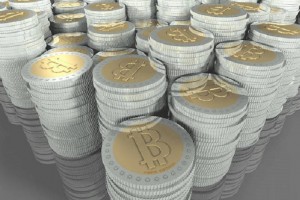Latest Posts
-
Finance 0
Is The Bank Of Japan Losing Control?
Bank of Japan Governor Haruhiko Kuroda met with Prime Minister Shinzo Abe Friday and discussed global economic and market developments. Kuroda told reporters that “There was no particular comment from the prime minister. “ According to the BOJ governor, Japan’s economy was moving in line with the BOJ’s scenario and that now is the time to monitor the economic effects of last month’s decision to adopt a negative interest rate policy. The meeting took place against a background of violent moves that took place this week that threaten to plunge Japan back into deep deflation and collapse the current ‘Abenomics’ experime...On February 13, 2016 / By Kurt Osterberg -
Finance 0
Shoot Now, Ask Later
Since the start of 2016, investor sentiment has led to a shoot now, ask questions later mentality. In the court of economic justice, all stocks have been convicted guilty of recession despite the evidence and defense that proves the economy innocent. Even the Federal Reserve Chair Janet Yellen did not prove to be a great public defender of the economy with her comments that negative interest rates are on the table. With large cap stocks down -13% and small cap stocks losing -25% from 2015, there are a mixture of indicators suggesting a looming recession could be coming. For example, banking stocks, the beating heart of the U.S. economy, sa...On February 13, 2016 / By Kurt Osterberg -
Finance 0
Goldman Looks At European Systemic Risk, CDS Concerns
By Mark Melin Systemic risk that was recently dormant is stirring, noted an economics research piece from Goldman Sachs. As credit spreads spike and pressure on bank equities has been building for weeks, it all just might be signaling a “reactivation of systemic risk concerns in markets.” That said analysis from Charles P. Himmelberg notes “fewer systemic concerns than credit markets are pricing.” Yellen: Too Big To Fail still Too Big To Fail The “systemic concerns” of credit markets are perhaps most emblematic based on the soaring Deutsche Bank credit defaults swaps, which increasingly appear to be pricing in disaster as Fed ...On February 13, 2016 / By Kurt Osterberg -
Finance 0
Here Is The Real Reason Why Authorities Want To Ban High Denomination Bank Notes
Over the past month, one of the more alarming developments in Europe has been the move to eliminate high denomination bank notes like the €500 bill. Indeed, as Bank of America reports, having changed its mind on the matter over the past few years, the ECB is now considering abolishing the €500 note. In a recent interview, Executive Board member Benoit Coeure said that “the ECB is assessing the fate of the €500 euro banknote, as concerns about its use in money laundering and crime grow and its usefulness for large payments comes into question” adding that “competent authorities increasingly suspect that they are being u...On February 13, 2016 / By Kurt Osterberg -
Finance 0
Three Stocks Unaffected By The Freefalling Global Economy
If watching the market spiral further down is having you reach for the antacids, take refuge in the safety of stocks that only do business in the States. Trading for great values and unaffected by the strong dollar or overseas turmoil, these three all-American stocks make great portfolio additions. To say that the global economic outlook is bad and deteriorating is like saying Cam Newton faced “some” pressure from the Denver defense in Super Bowl 50. It is a vast understatement. Markets have gotten off to a very rocky start here with the S&P 500 down over five percent in January which was its 10th biggest loss in an opening month of ...On February 13, 2016 / By Kurt Osterberg -
Finance 0
Is America A Safe Haven?
Will they never learn? The gurus and pundits are, once again, peddling the end of America – proclaiming that the U.S. dollar is a paper tiger, and the American economy is crumbling beneath our feet. The best way to address this wrong-headed thinking is to confront it with the facts – brutally delivered by the global markets. Looking back over the last 30 years, gold is up 224% and the S&P 500 has posted a return of 1,820%. And during this same time period, Japan was up 144%, and emerging markets were up 694%. Despite the headwinds of a strong dollar, the S&P 500 has gained 47% over the past five years. The MSCI China Index, on t...On February 13, 2016 / By Kurt Osterberg -
Finance 0
Reader Asks About “Fedcoin”: Should The Fed Issue Its Own Bitcoin?
Are central banks planning to issue their own digital currencies? If so, is there anything to fear? Those are the questions at hand today as reader Ken asked “Could you post your opinion of Fedcoin?” What is Fedcoin? Fedcoin is a digital currency proposal that would use the same blockchain technology as Bitcoin. Every penny could be traced to someone. Unlike Bitcoin, Fedcoin would not have a limited supply. A Newsweek opinion column by David Andolfatto addressed this question Should the Fed Issue Its Own Bitcoin? Fed Investigating Fedcoin David Andolfatto is Vice President of the Federal Reserve Bank of St Louis. That tells you the Fed i...On February 13, 2016 / By Kurt Osterberg -
Finance 0
Speculators Continue To Press
There are two broad developments in speculative positioning in the Commitment of Traders report in the week ending February 9. First, the market turbulence saw speculators reduce exposure. Of the 16 gross positions we track, 11 were reducing positions by liquidating longs or covering shorts. Second, there were an unusual amount of significant gross position adjustments, by which we mean a change of 10k contracts of more in a gross position. There were six such adjustments, and they were equally divided between increasing and reducing exposures. The gross long euro position rose by 18.6k contracts to 114.6k. The bears largely hung fa...On February 13, 2016 / By Kurt Osterberg -
Finance 0
Price Target Update: Proofpoint
For most of the past 15-20 years, the market has been flush with cash, and many stocks have traded at astronomical heights without real businesses to support them. In this exuberant market, fundamentals mattered little while momentum and technical rule the day. However, as excess liquidity dries up and global economic concerns weigh on the minds of investors, the reconciliation between cash flows and valuations has arrived. Now, fundamentals matter…a lot. Over the long term, it only makes sense to deploy capital into those businesses that actually generate adequate returns on invested capital (ROIC). Due to change in market mentality, and...On February 13, 2016 / By Kurt Osterberg -
Finance 0
UK Trade Gap In New Record
The deficit is the difference between what a nation earns in taxes on goods, services, incomes and corporate profits and what the country spends (defence, health care, education etc.). A nation may not run a deficit, so the deficit is added to the “stock” of a country’s national debt, increasing the interest that it must pay to its creditors. Ideally, a nation wants to be running a surplus which would eventually (think almost geological time scales here…) clear the national debt and eliminate interest payments on it. The UK has run its worst ever trade imbalance with the rest of the world in 2015, according to the Office for National ...On February 13, 2016 / By Kurt Osterberg
Top Posts
-
 The Importance for Individuals to Use Sustainable Chemicals
The Importance for Individuals to Use Sustainable Chemicals
-
 Small Businesses: Finding the Right Candidate for the Job
Small Businesses: Finding the Right Candidate for the Job
-
 How to Write the Perfect Thank You Letter After Your Job Interview
How to Write the Perfect Thank You Letter After Your Job Interview
-
 3 Best Large-Cap Blend Mutual Funds For Enticing Returns
3 Best Large-Cap Blend Mutual Funds For Enticing Returns
-
 China suspected in massive breach of federal personnel data
China suspected in massive breach of federal personnel data














